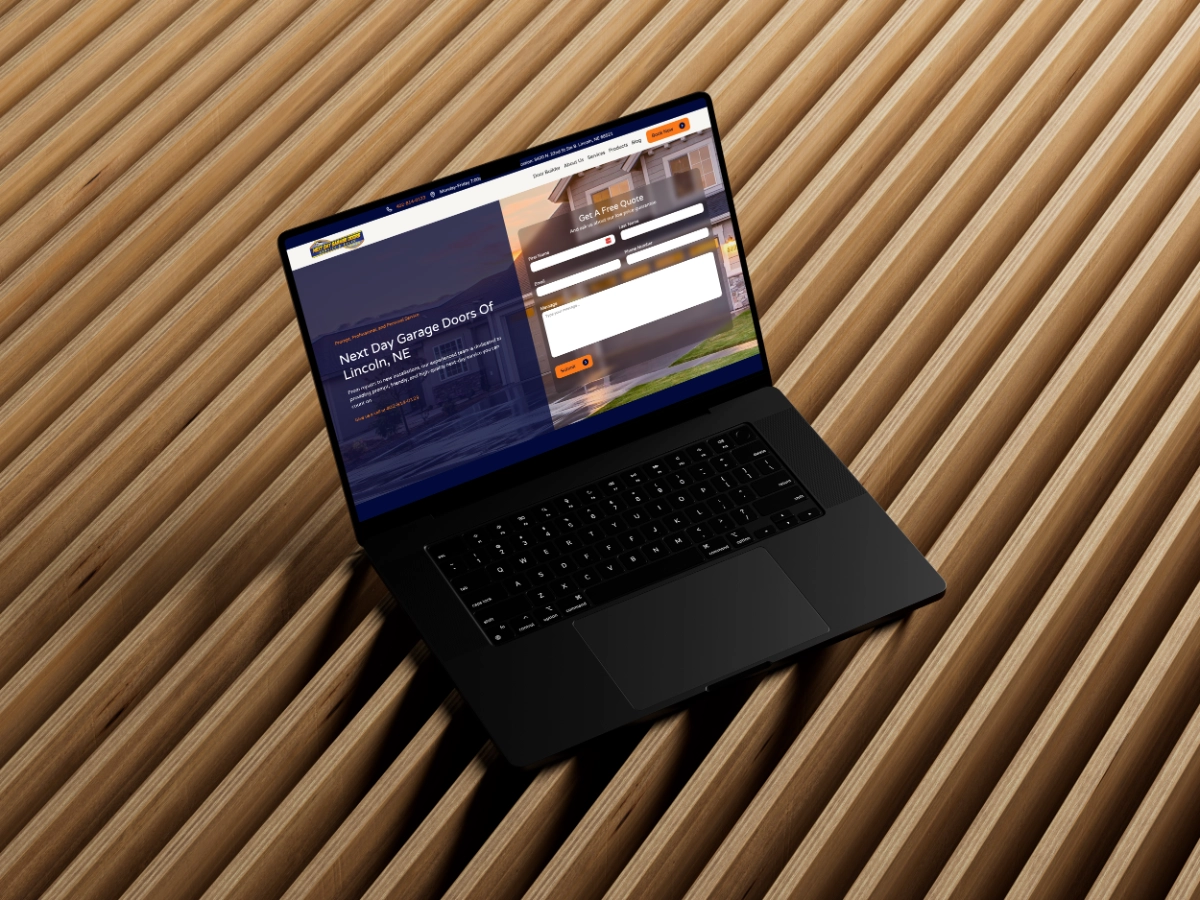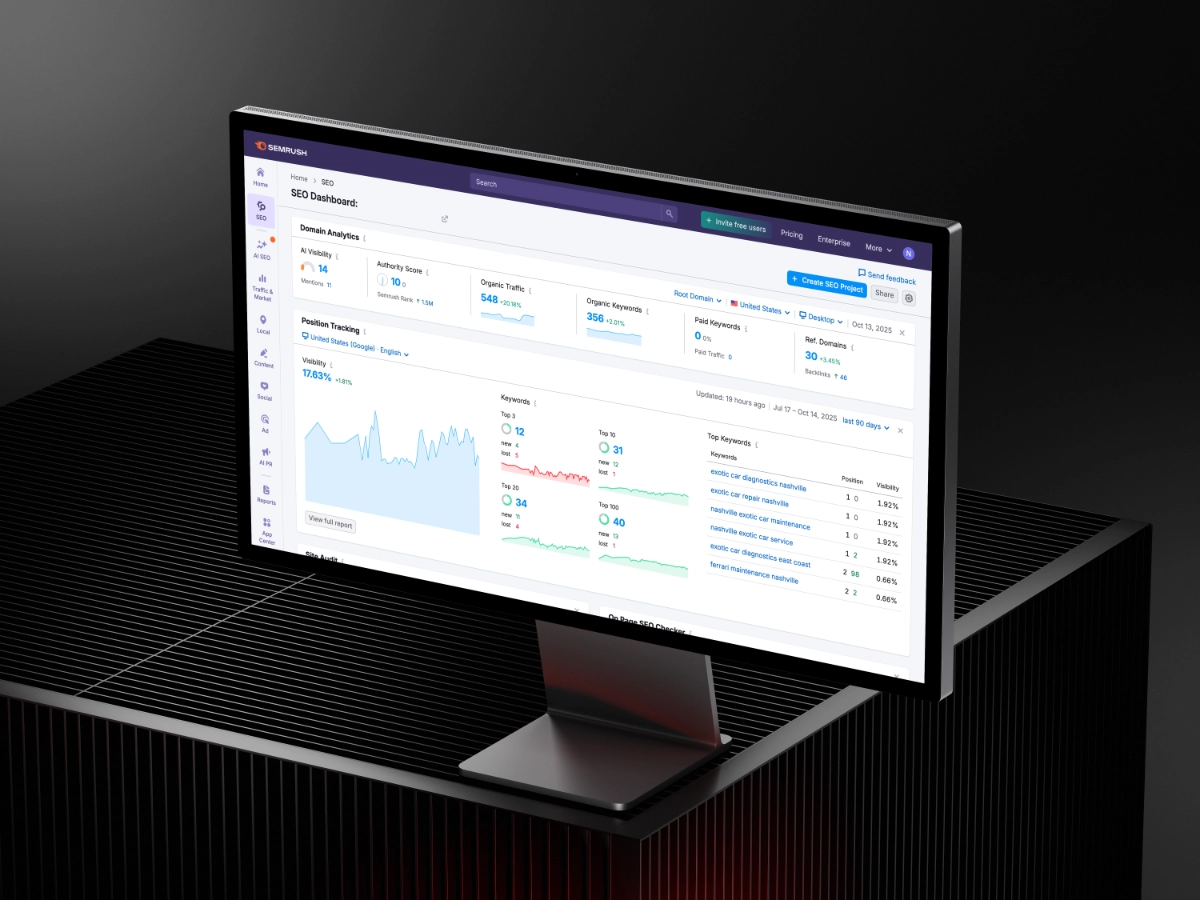When to Upgrade from Shopify to Shopify Plus
By Nicholas Reed
September 12, 2025
.webp)
As a Shopify Plus development agency, two of the most common questions we get asked are “when should I upgrade to Shopify Plus?” and “is Shopify Plus worth it?”
While regular Shopify serves millions of successful online stores, rapidly growing businesses often reach inflection points where the platform's limitations begin constraining growth potential rather than enabling it.
Shopify Plus isn't just an upgraded version of Shopify; it's an enterprise-grade platform designed for high-volume merchants, multi-brand operations, and businesses requiring advanced customization capabilities. Understanding when to make this transition, and more importantly, when the investment makes financial sense can determine whether your business scales smoothly or struggles against platform limitations during critical growth phases.
This comprehensive guide examines the key indicators that signal readiness for Shopify Plus, breaks down the platform's advanced capabilities, and provides financial analysis frameworks to help determine when the upgrade delivers positive return on investment for your specific business situation.
Understanding the Shopify Plus Difference
Before diving into upgrade timing and financial considerations, it's crucial to understand what distinguishes Shopify Plus from regular Shopify. These differences extend far beyond pricing to encompass fundamental capabilities that impact scalability, operational efficiency, and growth potential.
Shopify Plus is designed for merchants processing significant transaction volumes, managing complex product catalogs, or operating multiple brands under unified management. The platform provides enterprise-grade infrastructure, advanced automation capabilities, and customization options that aren't available on standard Shopify plans.
Key architectural differences include dedicated server resources, higher API rate limits, advanced scripting capabilities, and access to exclusive apps and integrations designed for high-volume operations. These technical advantages translate into practical benefits like faster site performance during traffic spikes, ability to handle complex pricing rules, and sophisticated automation that reduces manual operational overhead.
Revenue Thresholds and Financial Indicators
The most straightforward indicator for considering Shopify Plus is reaching revenue levels where the platform's percentage-based transaction fees begin creating significant cost inefficiencies. Regular Shopify charges transaction fees ranging from 2.9% + 30¢ to 2.4% + 30¢ depending on your plan, while Shopify Plus starts at 2.15% + 30¢ with negotiable rates for high-volume merchants.
For businesses processing $1 million annually, this fee difference can represent $7,500-$15,000 in annual savings. At $5 million in annual revenue, the savings grow to $37,500-$75,000 yearly—often more than enough to justify Shopify Plus's starting price of approximately $2,000 monthly.
However, revenue volume alone doesn't tell the complete story. Businesses with high average order values but lower transaction volumes might not see immediate fee savings, while high-volume, low-margin businesses could benefit significantly even at lower total revenue levels.
The break-even analysis becomes more complex when factoring in Shopify Plus's advanced features that can drive revenue growth, operational efficiency, and cost savings in areas beyond transaction processing.
Operational Complexity and Scaling Challenges
Many businesses find that operational complexity, rather than pure revenue volume, drives their need for Shopify Plus capabilities. Regular Shopify works excellently for straightforward e-commerce operations, but limitations become apparent as business models grow more sophisticated.
Multi-brand operations face significant constraints on regular Shopify, where each brand typically requires separate stores with individual management overhead. Shopify Plus enables unified management across multiple brands, shared customer databases, centralized inventory management, and consolidated reporting—capabilities that can save thousands of hours annually in operational overhead.
Businesses requiring complex pricing rules, bulk discounts, or sophisticated promotion structures often struggle with regular Shopify's limitations. Shopify Plus provides scripting capabilities that enable dynamic pricing, advanced discount logic, and automated promotion management that would be impossible or extremely cumbersome on standard plans.
International expansion presents another area where Shopify Plus capabilities become valuable. The platform's advanced localization features, currency management, and international payment processing capabilities streamline global operations in ways that justify the investment for businesses serious about international growth.
Advanced Features That Drive ROI
Understanding Shopify Plus's advanced features helps quantify potential return on investment beyond simple transaction fee savings. These capabilities often drive revenue growth and operational efficiency that significantly exceed the platform's costs.
Shopify Flow provides advanced automation capabilities that can eliminate hours of manual work weekly. Businesses can automate inventory management, customer segmentation, order processing, and marketing workflows that typically require dedicated staff time or expensive third-party solutions.
Launchpad enables scheduled promotions, product launches, and site updates that execute automatically at optimal times. For businesses running frequent promotional campaigns, this feature alone can improve conversion rates while reducing the staff time required for campaign management.
Advanced Scripts allow custom checkout experiences, dynamic pricing rules, and sophisticated discount logic that can improve conversion rates and average order values. These capabilities often drive revenue improvements that exceed Shopify Plus fees within months of implementation.
Wholesale B2B Capabilities provide comprehensive tools for businesses selling to other businesses, distributors, or retail partners. Shopify Plus enables separate B2B storefronts with custom pricing tiers, bulk ordering functionality, and account-specific catalogs that can unlock entirely new revenue streams. Businesses can offer volume discounts, payment terms, and specialized product collections to wholesale customers while maintaining their consumer-facing store operations. The platform's customer segmentation tools allow for sophisticated B2B customer management, including credit limits, custom payment terms, and territory-based pricing that enterprise buyers expect from professional suppliers.
Dedicated Success Management provides strategic guidance and technical support that helps businesses optimize their operations and identify growth opportunities. This personalized attention often delivers insights and optimizations worth far more than the platform fees.
Team and Resource Considerations
The decision to upgrade to Shopify Plus often correlates with team growth and resource allocation changes within e-commerce businesses. As companies scale, they typically invest more heavily in specialized e-commerce talent who can leverage advanced platform capabilities effectively.
Businesses with dedicated developers, marketing technologists, or e-commerce managers often see immediate value from Shopify Plus's advanced customization options, API capabilities, and automation tools. These team members can implement optimizations and custom solutions that drive measurable business improvements.
Conversely, smaller teams without technical resources might not immediately realize Shopify Plus's full potential, making the upgrade less financially attractive until they've built appropriate internal capabilities or partnered with agencies specializing in enterprise e-commerce optimization.
Competitive and Market Position Factors
Market position and competitive dynamics also influence upgrade timing considerations. Businesses competing against enterprise-level competitors often need Shopify Plus capabilities to maintain feature parity and customer experience standards.
B2B commerce operations frequently require Shopify Plus features like custom pricing, bulk ordering capabilities, and integration with ERP systems that aren't feasible on regular Shopify. For these businesses, the upgrade becomes necessary for competitive viability rather than optional optimization.
Seasonal businesses with extreme traffic fluctuations benefit significantly from Shopify Plus's dedicated resources and higher performance limits. The platform's ability to handle traffic spikes without performance degradation can be crucial for businesses where peak season performance directly impacts annual profitability.
Financial Analysis Framework
Developing a comprehensive financial analysis for Shopify Plus upgrade requires examining multiple cost and benefit categories beyond simple transaction fee comparisons.
Direct Cost Savings:
- Transaction fee reductions based on current and projected volume
- Elimination of third-party app costs for features included in Shopify Plus
- Reduced payment processing fees through negotiated rates
- Operational efficiency savings from automation and advanced features
Revenue Impact:
- Conversion rate improvements from advanced checkout customization
- Average order value increases from dynamic pricing and promotion capabilities
- International expansion revenue enabled by advanced localization features
- B2B sales growth from wholesale and custom pricing capabilities
Operational Benefits:
- Staff time savings from automation and advanced management tools
- Reduced technical overhead from dedicated support and infrastructure
- Improved decision-making from advanced analytics and reporting
- Risk mitigation from enterprise-grade security and compliance features
Implementation Timeline and Considerations
Planning the upgrade from Shopify to Shopify Plus requires careful consideration of timing, resource allocation, and potential business disruption. Unlike platform migrations, this upgrade typically involves minimal technical risk since it's an enhancement rather than a complete change.
Most businesses can complete the Shopify Plus upgrade within 2-4 weeks, including setup of advanced features and staff training. However, realizing the full benefits often requires several months of optimization, automation implementation, and workflow refinement.
Consider timing the upgrade to align with major promotional periods, product launches, or seasonal peaks where advanced features can provide immediate value. Avoid upgrade periods that coincide with other major business initiatives that might limit your team's ability to fully leverage new capabilities.
Getting Professional Guidance
Many businesses benefit from working with Shopify Plus specialists who understand the platform's advanced capabilities and can accelerate value realization after upgrade. These partnerships often pay for themselves through faster implementation of optimization strategies and identification of revenue opportunities.
Experienced consultants can conduct comprehensive audits of your current operations, identify specific areas where Shopify Plus features will drive value, and create implementation roadmaps that maximize return on investment from day one.
Making the Decision
The decision to upgrade from Shopify to Shopify Plus should be based on comprehensive analysis of your specific business situation, growth trajectory, and resource capabilities. While financial thresholds provide useful guidelines, operational needs and strategic objectives often prove equally important in determining optimal timing.
Businesses processing $2+ million annually, managing multiple brands, or requiring advanced B2B capabilities typically see immediate value from Shopify Plus. However, smaller businesses with specific technical requirements or seasonal traffic patterns might also benefit significantly from the upgrade.
The key is conducting thorough analysis that considers transaction fee savings, operational efficiency improvements, revenue growth potential, and competitive positioning needs. When these factors align favorably, Shopify Plus often becomes not just a worthwhile investment, but a crucial enabler of continued growth and market success.
For e-commerce businesses ready to scale beyond the constraints of standard platforms, Shopify Plus provides the enterprise-grade capabilities needed to compete effectively while building sustainable operational foundations for long-term growth. The platform represents more than an upgrade—it's an investment in your business's ability to scale efficiently and capture market opportunities as they emerge.
Have a question about this resource?
Please take a moment to fill out our form and we will help you out as soon as possible!
Thank you! Your submission has been received!
Oops! Something went wrong while submitting the form.













